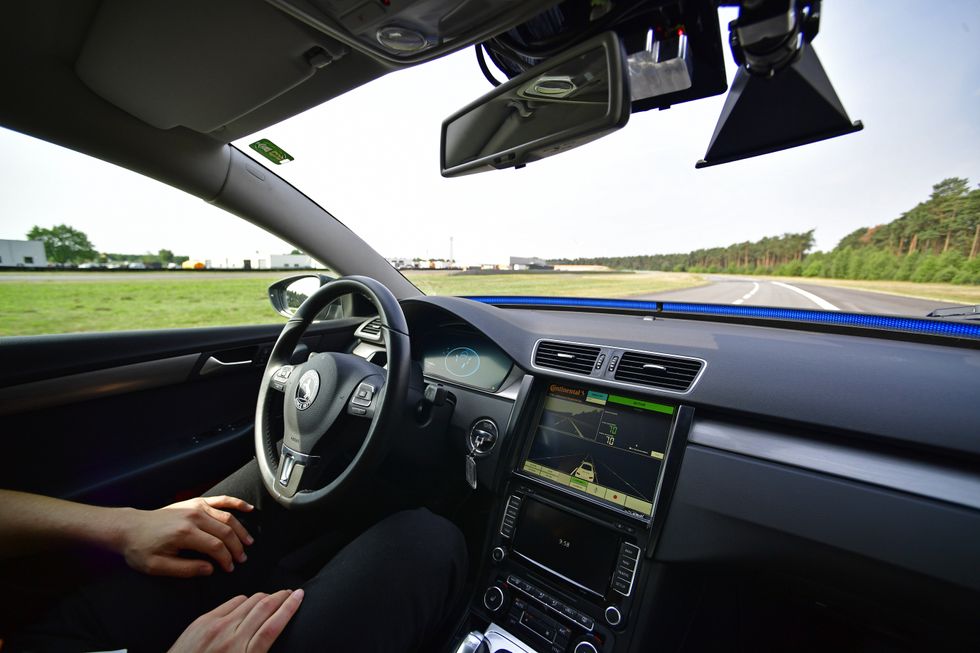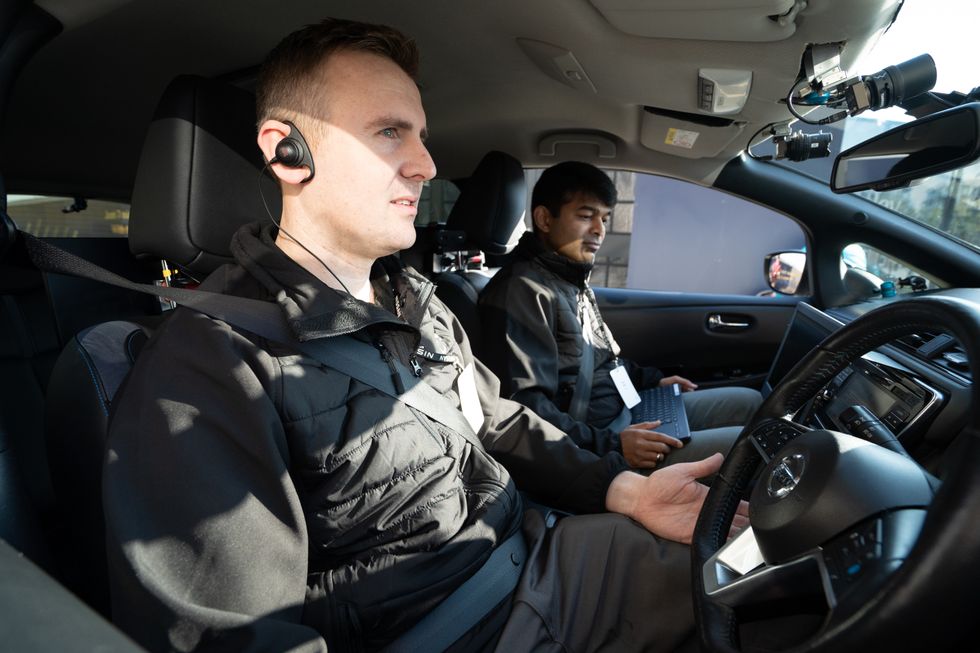'There’s lots of work still to do, not least bringing drivers along on the journey'
Don't Miss
Most Read
Trending on GB News
Self-driving vehicles are set to hit the road by 2026 after new laws were given Royal Assent, ushering in a new era of mobility for the United Kingdom.
The Automated Vehicles Bill will put Great Britain in a position to accelerate the rollout of self-driving vehicles within the next two years.
With the passage of the new Bill, the Government is hoping that automated vehicles will improve road safety by reducing human error, which currently contributes to 88 per cent of road collisions.
The law will require self-driving vehicles to achieve "a level of safety at least as high as careful and competent human drivers", while also meeting rigorous safety checks before being given the green light.
Do you have a story you'd like to share? Get in touch by emailingmotoring@gbnews.uk

Self-driving vehicles could be seen on the road by 2026
GETTYTransport Secretary Mark Harper, who has been one of the biggest supporters of the AV Bill, said the "milestone moment" has the opportunity to change the way people travel in the UK forever.
He added: "While this doesn’t take away people’s ability to choose to drive themselves, our landmark legislation means self-driving vehicles can be rolled out on British roads as soon as 2026, in a real boost to both safety and our economy."
Further law changes are expected to be introduced to ensure vehicles are safe for British roads, with an independent incident investigation function which will promote road safety and continuous technological improvement.
Between 2018 and 2022, the UK self-driving vehicle sector generated £475million of direct investment and created 1,500 new jobs.
It is hoped that the industry will create 38,000 more skilled jobs by 2035 and potentially be worth up to £42billion - making the UK one of the world leaders in the sector.
RAC head of policy Simon Williams called the new rules a "major step" towards autonomous vehicles being a staple of British roads.
He added: “But there’s lots of work still to do, not least bringing drivers along on the journey.
“There are also some very practical hurdles to overcome, such as how the cars of tomorrow will be able to successfully and safely navigate the UK’s complex web of streets – especially with so many potholes and faded road markings.”
Data from the RAC found that 58 per cent of drivers are scared of the idea of fully autonomous vehicles, while just 15 per cent think they will make roads safer.
Williams warned that a number of changes need to be made before the public fully accepts the changes that are set to be rolled out within the coming years.
Similarly, Ben Foulser, UK Head of Future Mobility for KPMG, described the Bill as a "landmark milestone" in connected and automated mobility (CAM).
He continued, saying that it would "provide clarity of the roadmap for investors, manufacturers, operators, and the wider public - and cementing the UK as a world leader in the development and deployment of these transformational technologies".
LATEST DEVELOPMENTS:
- Sadiq Khan and TfL owed £143million in Congestion Charge fines from United States, Japan, India and more
- Drivers left confused and at risk of massive fines from 'costly' Low Emission Zone rules launching in days
- Motorists handed loophole lifeline which could help get around harsh DVLA driving restrictions

The self-driving sector could be worth £42billion in 2035
PAThe expert added: "Our work for the Society of Motor Manufacturers and Traders found that the adoption of CAM could unlock £66billion of annual economic benefits by 2040, through £34billion of real benefits from productivity and efficiency gains, and £32billion of welfare benefits from improvements in safety and sustainability.”









